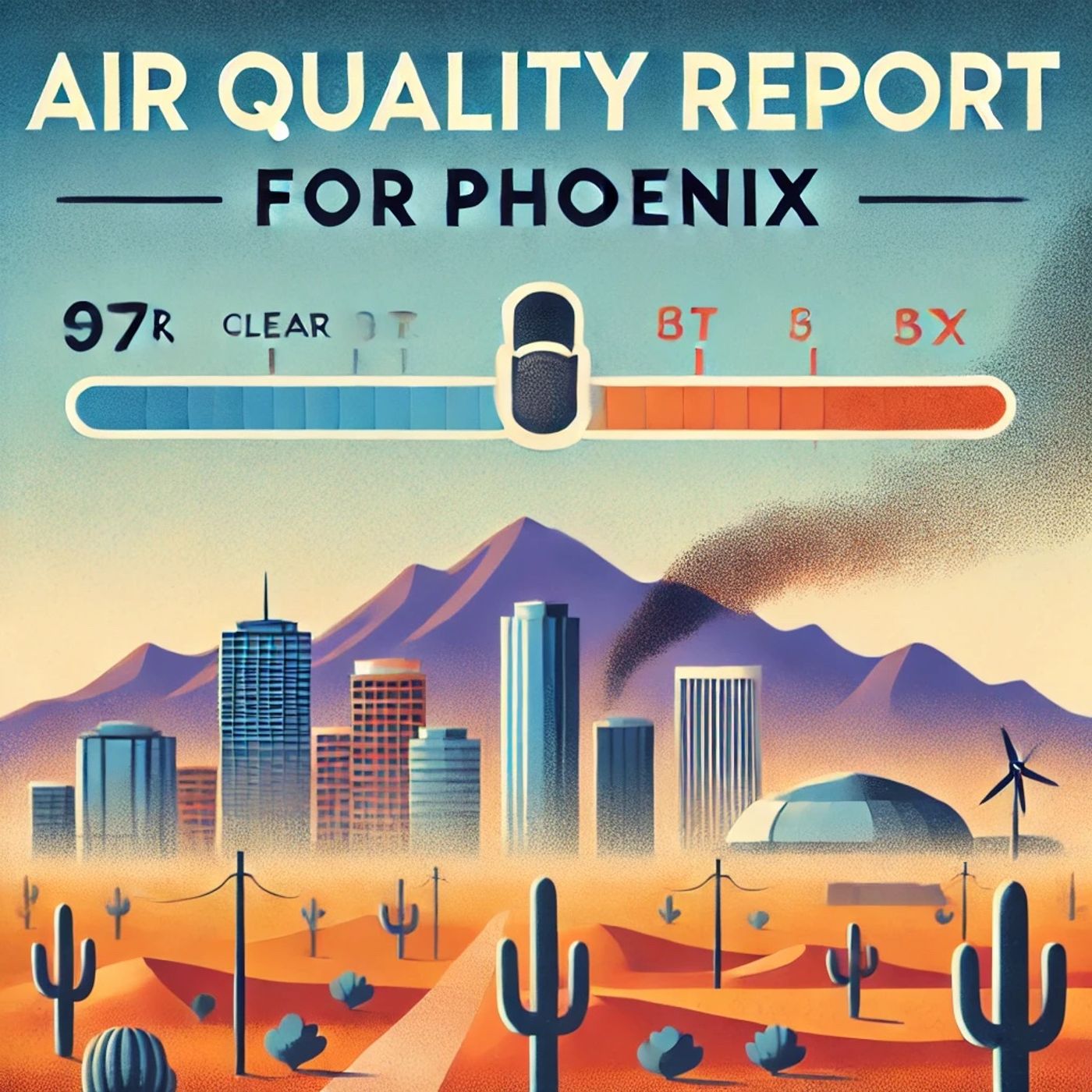Listen "Phoenix's Air Quality Raises Concerns Amid Fluctuating Levels"
Episode Synopsis
Phoenix, the capital city of Arizona, is known for its sunny weather and picturesque desert landscapes. However, the city's air quality is a crucial aspect of daily life that residents and visitors need to be aware of, especially during certain times of the year.As of today, Phoenix's air quality index, commonly referred to as AQI, is fluctuating between moderate and unhealthy for sensitive groups. The AQI is a numerical scale used to communicate how polluted the air currently is or how polluted it is forecast to become. The index ranges from zero to 500, with higher values indicating worse air quality. An AQI between 51 and 100 is considered moderate, while values from 101 to 150 fall into the unhealthy for sensitive groups category.Several factors contribute to Phoenix's air quality levels. Ground-level ozone, a primary summertime pollutant, is a significant cause of air quality concerns today. Formed when pollutants emitted by cars, power plants, industrial boilers, refineries, and other sources chemically react in the presence of sunlight, ground-level ozone can be particularly harmful during the hot, sunny days common in Phoenix.Particulate matter, especially PM2.5 and PM10, is another contributor to today's air quality situation. These tiny particles, which can be inhaled deep into the lungs, arise from a variety of sources, including construction sites, unpaved roads, fields, smokestacks, and fires. Elevated levels of particulate matter are frequently observed during periods of high wind or when there are local wildfires, both of which are not uncommon occurrences in the Phoenix area.The current advisories suggest that children, the elderly, and individuals with preexisting respiratory conditions such as asthma or chronic bronchitis should limit prolonged outdoor exertion to avoid adverse health effects. It is recommended to stay indoors where air filtration can mitigate some of the harmful impacts of the pollutants.Despite the challenges posed by today's air quality, there are measures that residents can take to reduce their exposure and contribute to better air quality overall. Using public transportation, carpooling, reducing energy consumption, and avoiding the use of gas-powered lawn equipment can all help lessen the volume of pollutants entering the atmosphere.Phoenix's ongoing commitment to improving air quality includes regulatory measures, public awareness campaigns, and technology-driven solutions. The city's strategic plan focuses on enhancing public transportation options, implementing green building standards, and advocating for stricter emissions standards.Staying informed about daily air quality levels is important for making informed choices about outdoor activities and personal health. Tools such as smartphone apps and local news updates provide timely information to help residents and visitors make decisions that can help protect their well-being while enjoying all that Phoenix has to offer.This content was created in partnership and with the help of Artificial Intelligence AI
More episodes of the podcast Phoenix Air Quality Report - Daily
Phoenix Enjoys Excellent Air Quality Today
23/08/2025
 ZARZA We are Zarza, the prestigious firm behind major projects in information technology.
ZARZA We are Zarza, the prestigious firm behind major projects in information technology.
